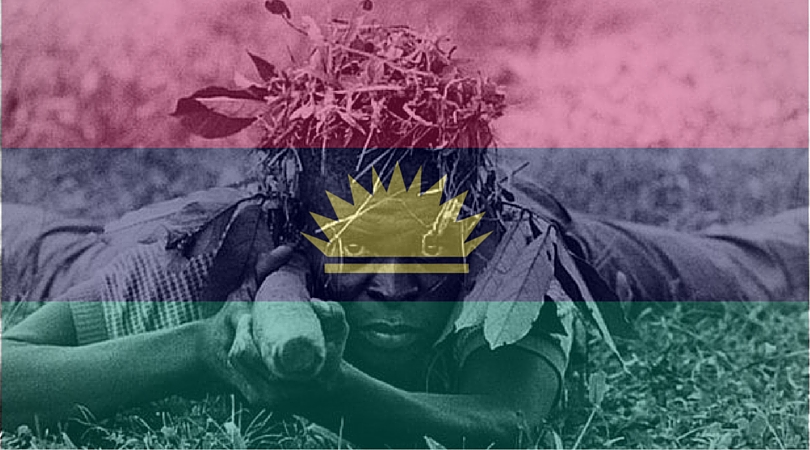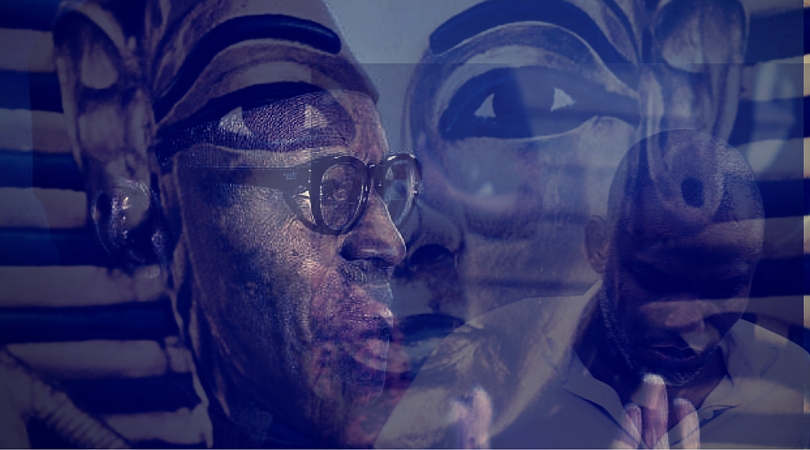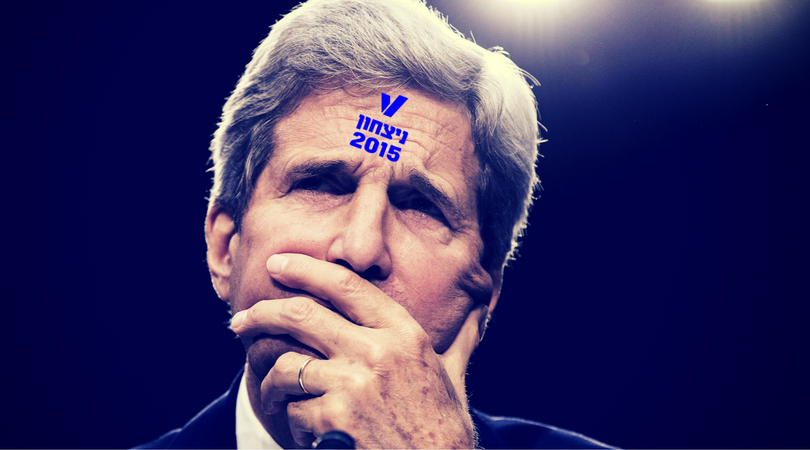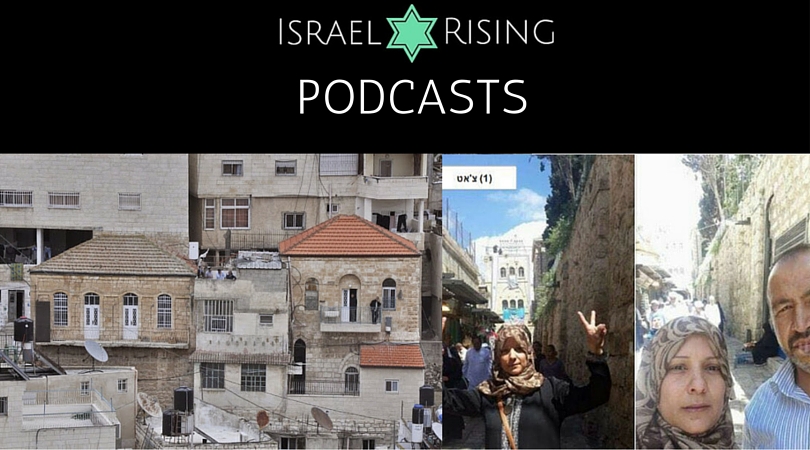Nigeria as a Genocidal State
Throughout history and in all regions of the world where there has been genuine and honest response to the crime of genocide, separation has always been the only sensible response.
Defeating Foggy Bottom in Israel
History will mark Israel’s election last year as a watershed moment. Whether the country fully identifies and supports Prime Minister Bibi Netanyahu really doesn’t matter. As Minister Zeev Elkin said yesterday, “Likud’s victory saved Israel.”
The State Department dispatched countless operatives to insidiously inject themselves into last year’s election campaign on behalf of the Zionist Union, in an operation that can only be described as meddling and string pulling. The Israeli electorate rebuffed these actions by handing Likud an enormous victory.
With the revelation of a secret deal between Herzog and Abbas now publicized, the V15 and Foggy Bottom’s strategy becomes even more gross. Essentially, the State Department under directives from the Obama administration sought to unseat and defeat Prime Minister Netanyahu. By doing so their aim was to place a puppet government in charge of Israel in order to sign a final status agreement with the Arab Palestinians. This agreement would have divided Jerusalem and created a sovereign terror entity in most of Judea and Samaria.
“In my contacts with the Palestinian Authority chief during 2014 I made efforts with the goal of reaching an understanding that would have prevented the wave of terror which I saw coming,” Herzog responded to the report.
The idea that any agreement, especially one that is a product of Western covert force would have prevented the current wave of terror is ludicrous. The Palestinian Authority has no ability to stop the terror as it is. Placing Abbas and his Western supported mafia in charge of even more land would have spelled complete destruction for the State of Israel.
By voting for Likud last year the Israeli populace was sending a message to the American government. “Stay Out!” It is true, billions of dollars in US aid flows into Israel annually and although many in Israel rightly claim, we no longer need it, the fact is even when we take the money the US gets a tremendous return on it. Unlike other countries that actually survive solely because they are being propped up by American aid, Israel provides the American military with forward intelligence and details from multiple fronts in the Middle East it cannot collect on its own. This intelligence sharing comes at a price and that is military aid.
This aid has gotten to Foggy Bottom’s brain and instead of respecting the relationship, they have repeatedly abused it. The Israeli voter used last year to move on and proved ready to redraw the relationship if needed. Last year was not an expression of love for Bibi, but a rejection of American neo-colonial influence, along with those politicians in Israel willing to play the puppet to a foreign puppeteer.
The Silent Intifada Weekly Report [June 17, 2016]
There were over 80 attacks which caused 7 injuries this week.
This week as almost every week there were dozens of terror attacks of varying severity not reported in most major media outlets. We report on these silenced events to present a fuller picture of the reality in Israel and balance the picture presented to innocent readers abroad. We hope that by reporting these incidents we can raise awareness so that actions can be taken to rectify this problem and improve reality in the Jewish State.
This week (June 10th- June 16th) there were 85 attacks in the ‘Silent Intifada’ updates on Hakol Hayehudi. These included two attempted attacks (one attempted stabbing and one attempted vehicular attack), and many incidents of throwing of stones and firebombs at vehicles, homes, and individuals.
On Friday June 10th, an Arab attempted to stab soldiers at the Beit Furiq junction near Itamar. On Saturday night June 11th, an Arab attempted to run over soldiers with his vehicle in the village of Avud in Binyamin.
In total seven Jews were injured this week, all as a result of stone throwing by Arabs on the roads. On Sunday June 12th, A driver was injured from stone thrown by Arabs near Kiryat Arba. That same night, three Jews were injured from stones thrown by Arabs near the Shechem Gate of the Old City of Jerusalem. The three were treated at Hadassah Mount Scopus Hospital.
Jews were injured three times from stones thrown by Arabs in the village of Hawara: on Monday June 13th, on Tuesday June 14th, and on Thursday June 16th. There were also seven additional incidents of stone throwing by Arabs in Hawara, most of which caused damage to vehicles.
Full list of attacks:
Thursday June 16th
- Arabs throw four firebombs at Jewish homes in Armon Hanatziv in Jerusalem.
- Arabs riot in Nazlat.
21:16- A Jewish driver is injured from stones thrown by Arabs in Hawara.
20:36- Arabs throw firebombs at the entrance to Migdal Oz in Gush Etzion.
12:35- Arabs throw stones at a bus near Shaar Shechem in Jerusalem.
7:00- Arabs throw firebombs at vehicles near Maale Adumim.
Wednesday June 15th
- Arabs riot in A-Tur in Jerusalem.
- Arabs riot in Qalqilya.
19:59- Arabs throw stones at vehicles near Michmas.
17:20- Arabs throw stones at a bus near Al-Fawr in Har Hevron.
9:50- Arabs throw stones at a bus on Route 443 near the Dor Alon Gas Station.
7:56- Arabs throw stones at vehicles near Hawara in the Shomron.
7:53- Arabs throw firebombs at a bus near Tekoa in Gush Etzion.
Tuesday June 14th
- Arabs attack IDF forces in Hisba.
- Arabs riot in Jabal Muchbar in Jerusalem.
- Arabs riot in A-Tur in Jerusalem.
- Arabs riot in Silwan.
- Arabs riot in Tura Al-Jarbiya.
- Arabs riot in Qalqilya.
- Arabs attack IDF forces in Iskar.
- Arabs riot in Bir Zeit.
- Arabs throw stones in Husan.
- Arabs throw stones on the Hotze Shomron Road.
- Arabs throw stones in Hawara.
- Arabs throw stones in Zevuva.
- Arabs throw stones in Silwan.
- Arabs throw stones in Malach.
- Arabs throw stones in Yavad.
- Arabs throw stones at vehicles in Husan in Gush Etzion.
22:47- Arabs throw firebombs in Shuafat, several fires break out as a result.
22:22- Arabs throw stones at a bus in Hawara in the Shomron.
22:08- Arabs throw stones at vehicles near Anata causing damage.
21:20- A Jew is injured from stones thrown by Arabs in Hawara.
17:28- Arabs set several fires near Modiin Illit.
16:27- Arabs throw stones at several vehicles near Hawara in the Shomron causing damage.
9:44- Arabs throw stones at vehicles between Hermesh and Mevo Dotan in the northern Shomron.
Monday June 13th
- Arabs throw stones in Dir Abu Mashal.
- Arabs throw stones in Beit Furiq.
- Arabs throw stones in Hizme.
- Arabs throw stones in Silwan.
- Arabs throw stones in Hawara.
- Arabs throw stones near Efrat.
- Arabs throw firebombs at IDF forces in Malach.
- Arabs throw firebombs at the fence of the Baal Hatzor Army Base.
20:24- A Jew is injured from stones thrown by Arabs in Hawara. Damage is also caused to the vehicle.
16:17- Arabs riot near the Bitunia Crossing.
13:00- Arabs throw stones at vehicles in Ras Al Amud.
00:20- Three Jews are injured after Arabs throw stones at the bus they were riding on towards the Kotel. The three are taken for treatment at the Hadassah Mount Scopus Hospital.
Sunday June 12th – Shavuot
- Arabs throw stones in Al-Hadr.
- Arabs throw stones in Hizme.
- Arabs throw stones in Dahit Al-Barid.
- Arabs throw stones in Tekoa.
- Arabs throw stones in Jabal Mualach.
- Arabs throw firebombs in Armon Hanatziv.
- Arabs throw stones in the Gal neighborhood of Hevron.
- Arabs throw firebombs in Shuafat.
- Arabs throw firebombs in Issawiya.
23:28- Arabs throw stones at a bus and at IDF soldiers in Ofra.
23:20- Arabs riot at the Zif Junction in Har Hevron.
21:59- A Jewish woman is injured after Arabs throw stones at her vehicle near Kiryat Arba.
21:44- Arabs throw stones at the Elias Junction near Hevron.
19:27- Arabs throw stones at an IDF vehicle near Al-Fawr in Har Hevron.
00:15- Attempted vehicular attack: An Arab attempts to ram into IDF soldiers near Avud in Binyamin. Thankfully none are injured.
Shabbat June 11th
- Arabs throw stones in Kadum.
- Arabs throw stones near Rachel’s Tomb.
- Arabs throw stones in Hizme.
18:52- Arabs throw stones at a soldier near Carmel in Har Hevron.
Friday June 10th
- Arabs throw stones near Herodian.
- Arabs throw stones near Yatta.
- Arabs throw stones in Beit Amra.
- Arabs throw stones in Sheikh Saad.
- Arabs throw stones in Maale Zeitim in Jerusalme.
- Arabs throw stones in Silwan.
- Arabs throw firebombs in Burdus.
- Arabs throw firebombs near Rachel’s Tomb.
- Arabs throw stones in Baal-Muntar.
- Arabs throw stones in Avud.
- Arabs throw stones in Silwad.
- Arabs throw stones in Sayid.
- Arabs throw stones in Al-Fawr.
- Arabs throw stones in Al-Ram.
17:10- Attempted stabbing: An Arab attempts to stab soldiers near Itamar.
[podcast] Daniel Luria: Why Does the World Care When Jews Build Buildings?
Daniel Luria, Executive Director of Ateret Cohanim sat with me and gave an update on new building permits in the Old Yemenite Village (Silwan), PA’s prblem with praising terror, and 50 years of reunificatio of Jerusalem.






